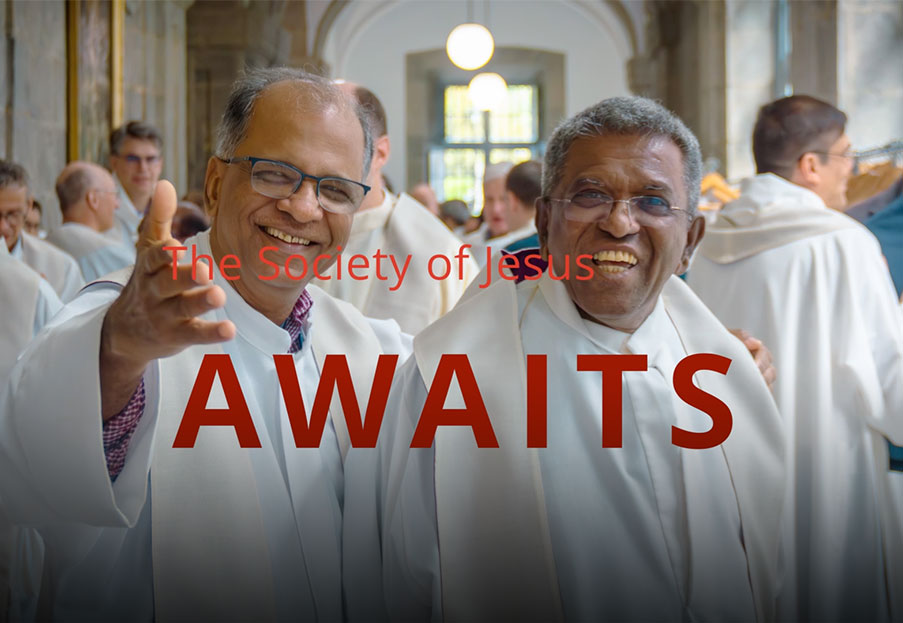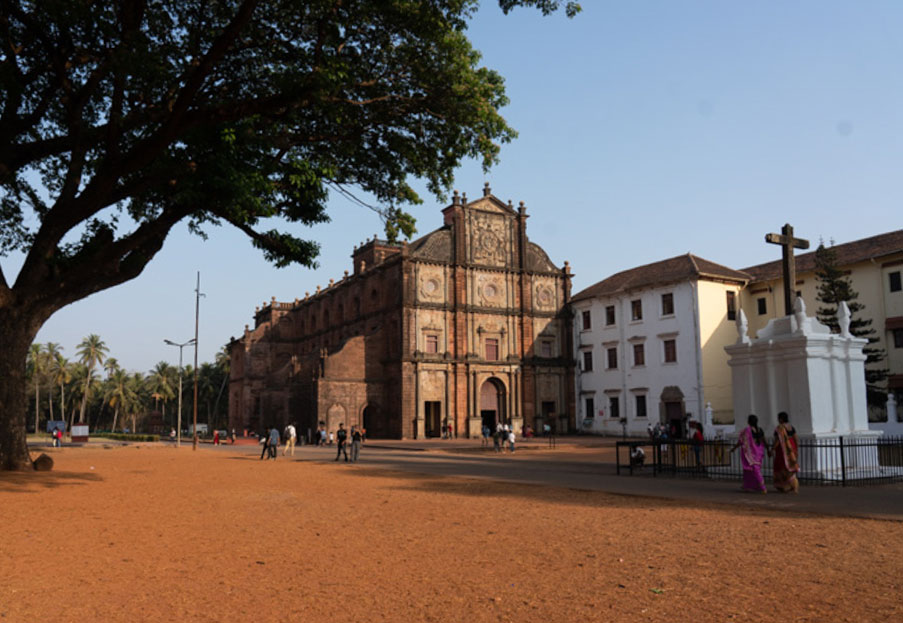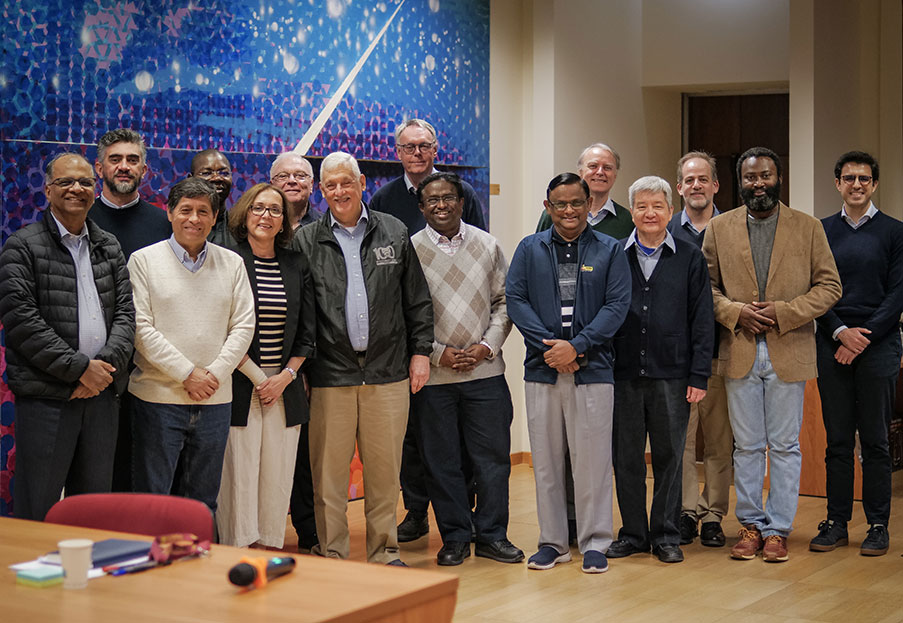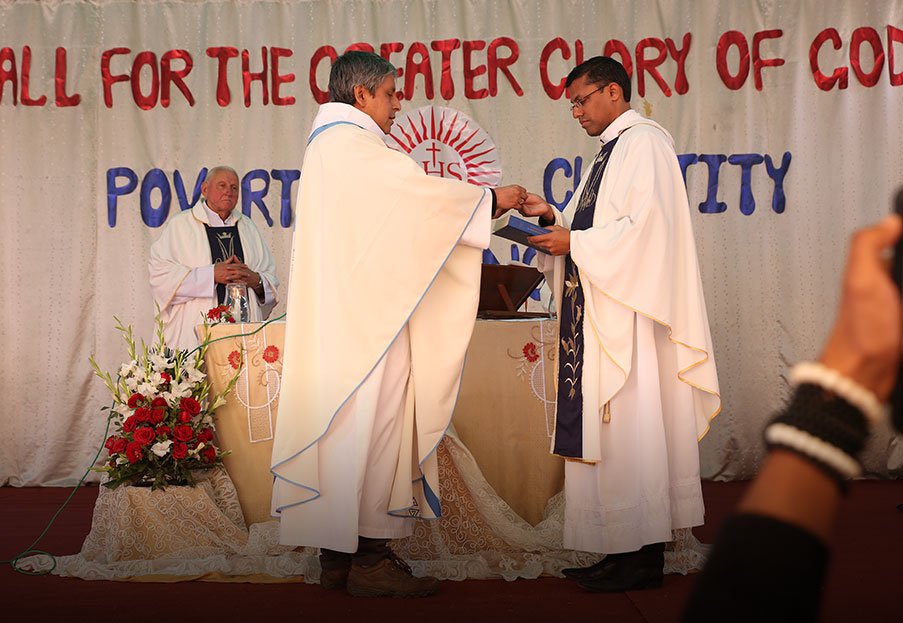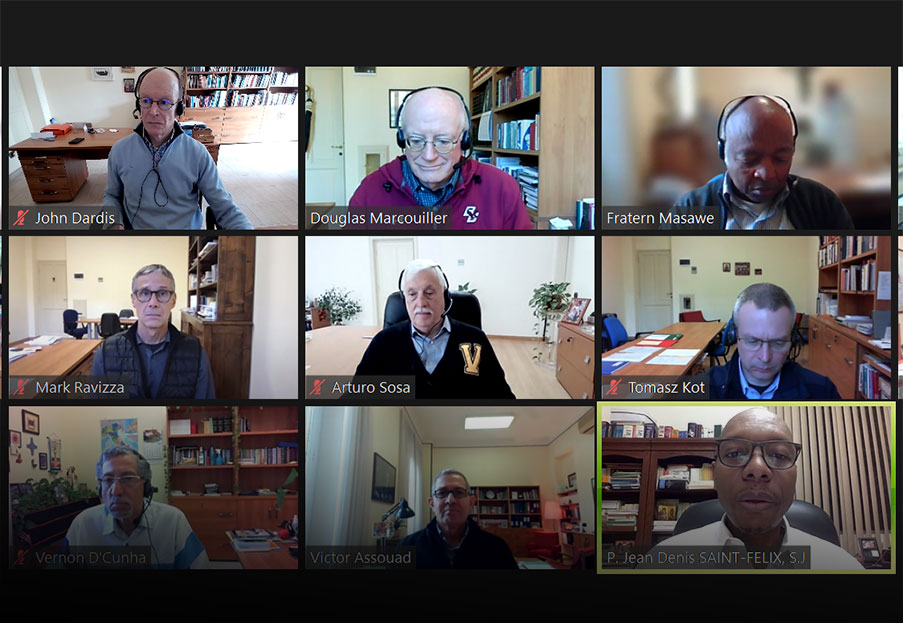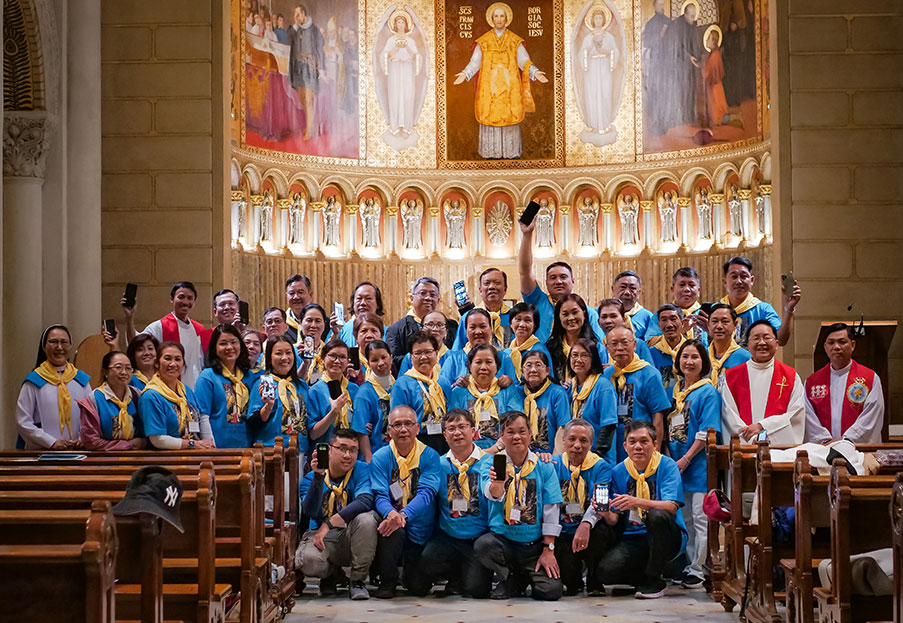An event at the Curia: Jesuit brothers from all over the world
During the week of July 3-10, nearly forty Jesuit brothers came to the Curia to share their experience of religious life as brothers. What does it mean today to be a Jesuit religious without being a priest? What does it mean to be a Jesuit, according to the experience of members of the Society who have chosen the religious life without ordination to the priesthood?
Topics for reflection, times of prayer, sharing. There was talk about Jesuit formation for the brothers, ways of promoting vocations to the Society that make a clear place for the brother’s vocation. There was an attempt to see more clearly what it means to participate in an apostolic community as a brother. And, towards the end, there was an effort to identify ways in which the brothers could maintain and improve communication among themselves.
We met with some of the participants from different continents. Over the next few days, we will share their testimonies.
But it all started with Father General. Ever since he took office, he has never stopped saying how essential the brothers are to the life of the Society, including how much his own vocation as a Jesuit was nourished by the example of the brothers he had known in school. During the first session, speaking in Spanish and departing freely from the text he had prepared, he told stories, opened his heart and repeated how much he counted on his fellow brothers to make the Society fully itself.
Here
are some elements of the General’s “speech,” which was intended to be an
introduction to the personal and communal prayer that was to follow.
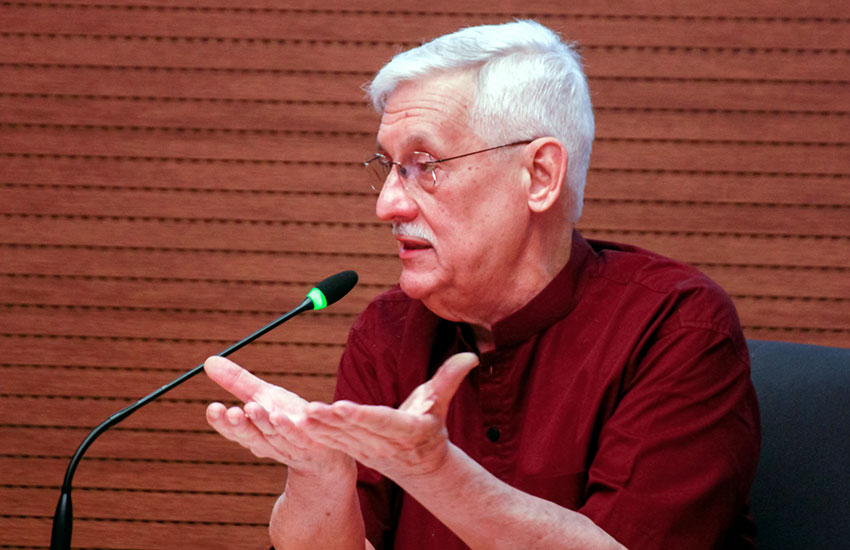
Fr. General Arturo sosa SJ.
“In this introduction, I offer you some points of prayer on the prophetic dimension of the charism of the Society of Jesus.
The prophet is called and chooses to follow the call. He experiences God’s presence even though he does not feel worthy (Is 6:1-5), his life is changed by the mercy that makes him change his life... he is a convert who lets go of the reins of his life. He listens to the voice of God... he chooses to follow it.
The prophet looks at himself for what he is, not for what he does. He is a person recognized as a man-woman of God because he/she has experienced the Lord in his/her heart and he/she recognizes his presence in history, in the lives of the people with whom he/she shares his/her life. The prophet comes from the people, not from a special race or class. The prophet is sent. The prophet experiences with such force the presence of God in his/her life and in the life of the people that he/she cannot remain calm, silent, apart... he/she has to prophesy, to enter into dialogue with the people to share the Word of God that he/she has heard.
Whatever he does, a Jesuit Brother is a man of God who has chosen to be a companion of Jesus, to share his life, his word and his mission of reconciliation and justice, proclaiming that the Kingdom of God is near.
The prophetic dimension of the Jesuit Brother’s life-mission is expressed in having his eyes fixed first on God; in that he seeks, finds and shows the way to God; in being opposed to clericalism, to excessive ambition, to the abuse of power; in interior freedom that leads to give witness to the essential of religious life; in the happiness of walking with Jesus, poor and humble, serving in whatever is needed.”
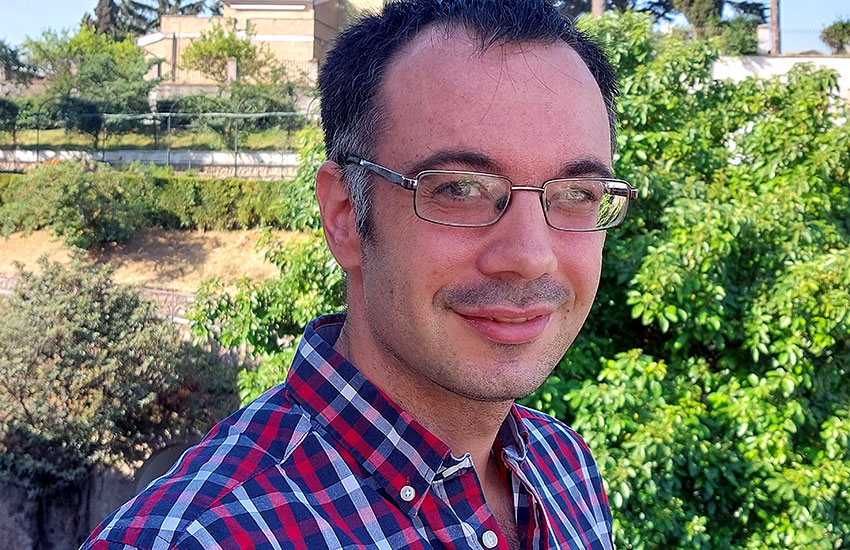
Br. José María Tejedor García, SJ.
Sharing with brothers from all over the world
Testimony by José María Tejedor García, SJ – Province of Spain
Attending the Brothers’ meeting in Rome is for me an opportunity to meet Jesuit brothers from all over the world and to deepen our vocation in such an important place for the Society as Rome in an atmosphere of prayer and fraternity.
It is a journey back to the origins, to the beginnings of my vocation, to that first call when the Lord invited me to follow him, with companions. It is a real gift to be able to share my vocation with companions from very different cultures and places, but with the same vocation. During these days, we have been given the opportunity to deepen our understanding of the formation, vocation and history of the Jesuit brothers. But what I value most is sharing personal experiences with brothers from all over the world, who are my Friends of the Lord.
In my specific ministry in Spain, I work in a center for minors at risk. It seems to me that the vocation of a brother makes a lot of sense: to be able to be a BROTHER to children and young people harshly treated in life.
In my Province of Spain, the brothers have played a very important role in history. I believe that we need to renew this vocation, to present it to the young people who come to the Society and to take great care of the formation of Jesuit brothers.
Our
Province, Spain, continues to be the Province with the most Jesuit brothers;
many of them, despite their advanced age, continue to give a precious witness
of discreet work and generous dedication. They are the ones who have taught me
to be a Jesuit Brother. In short, I feel a deep sense of gratitude to God and
to the Society for this vocation shared with others.
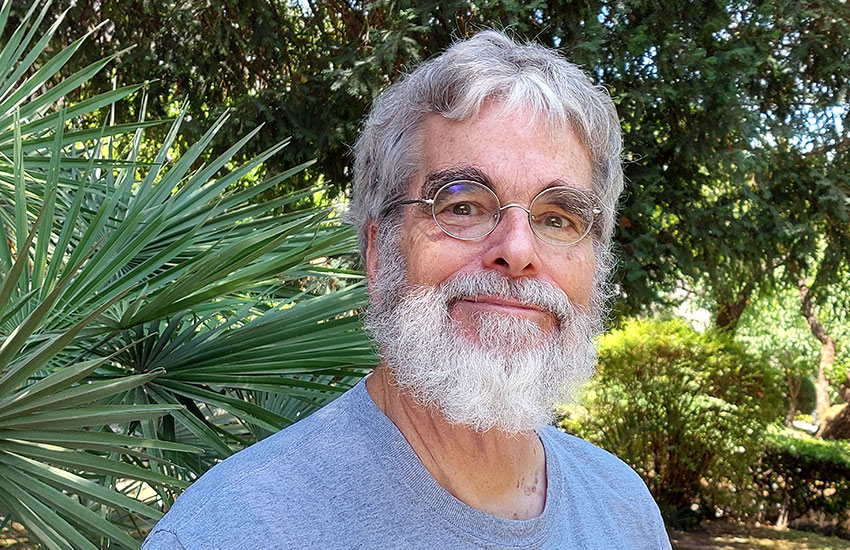
Br. Guy Consolmagno, SJ.
Much more than just being “not a priest”
Testimony by Guy Consolmagno, SJ – Vatican Observatory
I work in Rome in a community that draws Jesuits from around the world. So it was nothing unusual for me to encounter so many different languages and cultures. However, what kept surprising me this week has been remembering that we are all brothers, not priests!
In fact, even that distinction was something we talked about a lot. Being a brother is so much more than just being “not a priest.”
What is it like to be a brother? One of us said it is like being in a band; someone else might be the frontman, or play lead guitar, but our role is to be part of the rhythm section that keeps the song moving. It is like being on a soccer team; someone else might be the flashy striker, scoring the goals, while we play defense. We are the ones back stage in a theatre, taking care of the lights and the props while the big name actors strut their stuff. We love being part of the team, doing the hidden work that makes everything else work.
People like to talk
up leadership skills. I think what gets terribly underestimated are
“followership” skills. We need to learn how to be team members, to do the work
not for the attention from the audience but for the greater success of the
project... and the greater glory of God. And even as some of us (like me) get
put into leadership positions, knowing how to be a team member makes us better
leaders.
